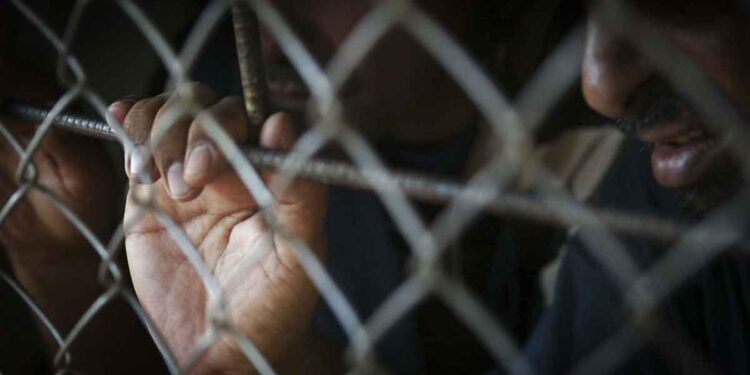Detainees are facing widespread torture in detention centres across Iraq, according to a new report from the United Nations.
The report, which tells of abuse that took place from 1 July 2019 to 30 April 2021, was compiled after interviews with 235 detainees – more than half of whom reported being tortured or otherwise ill-treated while in custody. Access to legal representation and other human rights were also routinely violated, according to the report’s findings.
UN human rights spokeswoman Marta Hurtado said that some detainees told of being given electric shocks from exposed wires and beaten with metal pipes. One said they were hung from a chain on the ceiling by their handcuffs.
She added: “The report states that legal procedures designed to bring interrogations and detention under judicial control within 24 hours of the initial arrest are not respected, and access to a lawyer is systematically delayed until after suspects have been interrogated by the security forces.”
The spokeswoman said that confessions were often extracted under torture and that the location of 17 detention centres was still unknown.
“The report also raises concerns that the authorities ignore complaints and signs of torture and says that the systems established to address official complaints appear to be neither fair nor effective,” added Hurtado.
“The report also says that the limited accountability for such failures on the part of the authorities suggests acquiescence and tolerance of these practices.”
Torture and ill-treatment are illegal under international law, and the international Convention Against Torture was signed by the Iraqi government in 2011.
Iraq also has national laws in place that prohibit the use of torture.
However, the report suggests that procedures have not been put in place by the Iraqi government to safeguard against torture being employed against prisoners – leading to its widespread use across the country.
The report concludes that the authorities in Iraq need to fully align their anti-torture legislation with international human rights law, especially the UN Convention Against Torture.
In reference to the report, the UN High Commissioner for Human Rights Michelle Bachelet said that actual prevention of torture, rather than just policies on paper, would help contribute to long-term peace and stability, which is in the interest of the state as well as the victims.






























